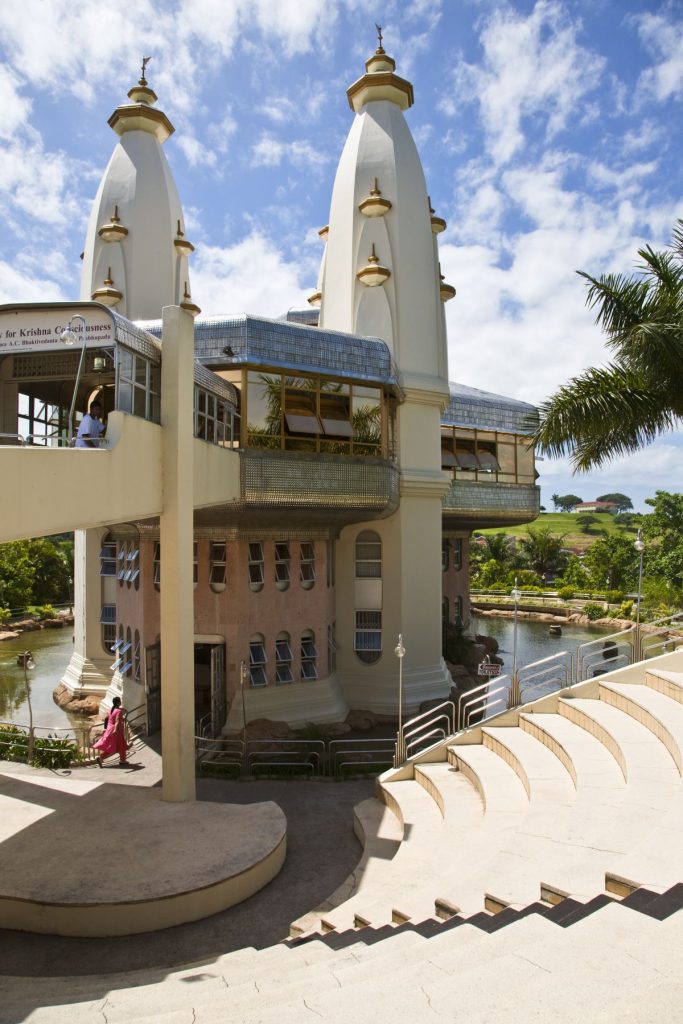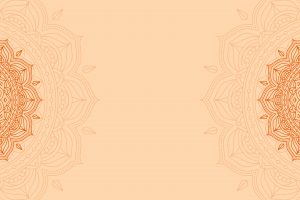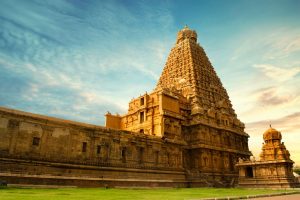
© Shutterstock
Fazal Ahmad, London, UK
Location: Durban, South Africa
Belief: Hinduism
Era: 1985 CE
The Hare Krishna Temple in the Chatsworth suburb of Durban, also known as the Sri Sri Radha Radhanath Temple, is one of the largest such Hindu temples in the Southern Hemisphere.
In 1975 during the Apartheid era, Swami Prabhupada, founder of the International Society for Krishna Consciousness (ISKCON), visited South Africa and inspired his followers to unite their efforts in building a temple as a symbol of hope and spirituality. Amidst political turmoil, the Hindu community dedicated a decade to this project, culminating in the temple’s opening on 18th October 1985. With its unique octagonal roof and three elegant white domes, the design beautifully represents the lotus flower, symbolising purity and enlightenment.
Worship begins at 4:30 every morning, drawing a vibrant crowd of Hindus eager for prayer and devotion. Over nearly four decades since the temple’s inception, an astounding 2.5 million visitors have walked through its doors. Central to the devotion is Krishna (as). It is worthy of note that some believe Krishna (as) was a prophet of God, not God Himself.
The Fourth Caliph of the Ahmadiyya Muslim Community, Hazrat Mirza Tahir Ahmad (as), clarified that Krishna (as) was a prophet of God and that some of the unusual features attributed to him were to be interpreted as spiritual language rather than physical features. For example, his having wings was a sign of protection of his community. His having more arms was a sign of extra faculties provided to a prophet rather than literally having four arms. His being shown as a flute player was indicative that his message was not his own, but that the flute player (God) was sending his message for the faithful through his messenger Krishna (as) and disseminated it to his congregations through the gopis, cow herders or shepherdesses.
Emerging from the shadows of apartheid, South Africa continues to grapple with inequalities and persistent poverty. In 1997, the ISKCON community ignited a transformative initiative, offering free meals to vulnerable children. Today, the temple’s kitchen serves an impressive 10,000 vegetarian meals daily. Meanwhile, the Hindu community has expanded its outreach, establishing several kitchens across the country to nurture and support their local communities.
References:
ISKCON Durban: https://iskcondurban.net/about-us/temple-history/ accessed on 22 January 2025.
Hazrat Mirza Tahir Ahmad (rh), Revelation, Rationality, Knowledge and Truth (Tilford, Surrey: Islam International Publications, 1998), 103-107.




Add Comment